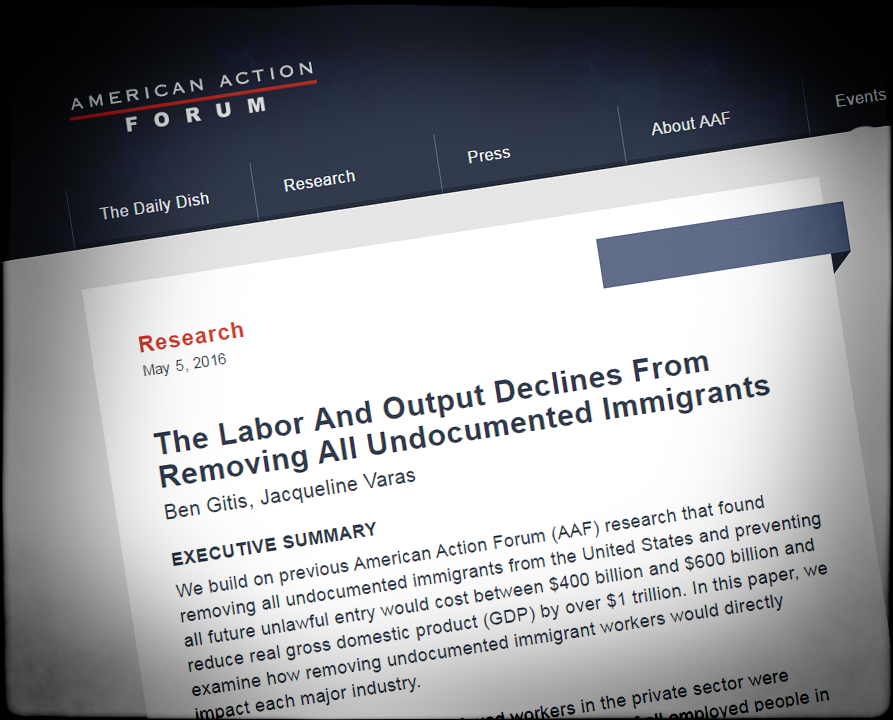The American Action Forum (AAF) published a study last week arguing that the U.S. economy would lose as much as $623 billion in labor output if illegal immigrants were deported. The AAF portrayed this as a major economic loss for Americans, and a credulous media went along with it. "Tremendously expensive," according to Townhall. "Economic havoc," proclaimed Politico. "A devastating blow," said The Week.

There is a serious misunderstanding here. The AAF report claims only that illegal immigration has increased economic output by up to $623 billion. It does not show that natives get that money. In fact, the vast majority of the economic gains from immigration are captured by immigrants themselves in the form of wages, so most of the $623 billion that would be "lost" currently goes to illegal immigrants, not to Americans.
One way to see the difference between the size of the economy and the income of natives is to imagine that every American gets cloned, and the capital stock doubles to match the larger workforce. The American economy would be twice as large as before, but Americans would still have the same per capita income. The cloning would therefore be "good for the economy" in the sense that GDP has doubled, but the pre-existing population would be no better off.
Of course, the reality of immigration is more complicated than the cloning story. Because the skill distribution of real-world immigrants (unlike clones) is different from that of natives, immigration does generate efficiency gains. But those gains are always tiny relative to the increase in GDP. In a 2013 analysis for CIS, economist George Borjas estimated that of the hundreds of billions of dollars that illegal immigrants add to the U.S. economy, just 2.2 percent of those dollars go to natives. That would mean the "devastating" $623 billion cost of deportation reported by the AAF translates into a loss for natives of somewhere around $14 billion, which is less than one tenth of one percent of GDP. Far more important would be the distributional, fiscal, and logistical impacts of deportation, which include a major shift of income from employers and consumers toward low-skill native workers.
Confusing the size of the economy with gains for natives is a common problem, but it need not continue. Making an inquiry to an outside expert would have helped the media report fairly on the AAF study, but I cannot find a single outlet that did so. For all their professed interest in fact-checking, the media have some rather persistent and self-imposed blind spots.
Jason Richwine is an independent public policy analyst and contributing writer to National Review.
